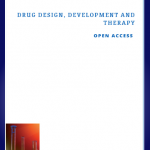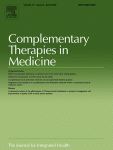José Enrique Eizayaga, Juan Ignacio Eizayaga
Prospective observational study of 42 patients with atopic dermatitis treated with homeopathic medicines
Homeopathy, 2012, 101 (1), 21-27

Background - Atopic dermatitis (AD) is a highly prevalent chronic inflammatory skin disease which usually develops during childhood. Despite being a condition frequently treated with homeopathy, the evidence is still insufficient to define homeopathic treatment’s efficacy and the best therapeutic strategies.Aims - To evaluate the effectiveness of homeopathic treatment of AD in a general homeopathic practice setting.Methods - Patients spontaneously seeking homeopathic treatment meeting Hanifin and Rajka’s criteria were prospectively treated. Severity of disease was evaluated by Rajka and Langeland’s score and a set of four Visual Analogue Scales (VAS) evaluating disease severity, itch, general and psychological wellbeing and quality of sleep. Assessed outcomes were: change in AD extension, change in VASs, and a categorical scale for global subjective perception of evolution.Results - Forty two patients were eligible. Twenty-one had other atopic comorbidities and 28 (66.7%) were moderate or severe cases. Sixteen (38.1%) patients dropped out. Significant differences were found comparing first and last consultations in mean percentage (95%CI) of affected skin area, 21.1% (10.9; 31.4) versus 5.5% (1.3; 9.7) respectively, P = 0.002, and in the change or the four VASs: [mm (95%CI)] AD 31.1 (20.6; 41.7), P < 0.0001; Itch 35.0 (23.6; 46.4), P < 0.0001; General wellbeing 11.1 (1.2; 20.9), P < 0.0188, and Sleep 17.4 (5.0; 29.8), P < 0.0073. Homeopathic aggravations were reported after 29.8% of prescriptions. Twelve individualized homeopathic medicines were prescribed; Sulphur accounted for 60% of cases with good treatment response.Conclusions - This study suggests that in a general medical practice setting, homeopathic treatment could be regarded as an effective choice for patients with AD.







